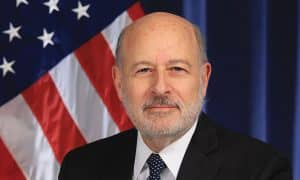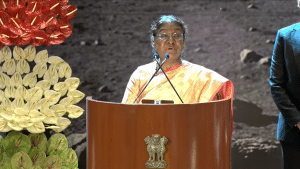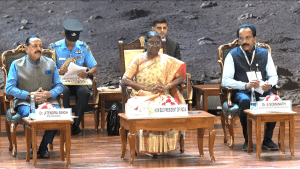The Federal Communications Commission (FCC) is planning to set up a Space Bureau to better support the needs of the growing satellite industry.
The proposal is part of FCC Chairwoman Jessica Rosenworcel’s plan to reorganize the agency, that would also promote long-term technical capacity at the FCC, and navigate 21st century global communications policy.
“The satellite industry is growing at a record pace, but here on the ground our regulatory frameworks for licensing them have not kept up,” Rosenworcel said while making the announcement on Thursday (November 3).
The growing newspace industry has kept the commission busy, and over the past two years, the agency has received applications for 64,000 new satellites.
According to the plan, FCC’s International Bureau would be reorganized into a new Space Bureau and a standalone Office of International Affairs. Rosenworcel believes the changes would help ensure that the FCC’s resources are better aligned for the agency to continue to fulfill its statutory obligations on one hand, and also keep pace with the rapidly changing realities of the satellite industry and global communications policy.
FCC is responsible for regulation of communication infrastructure, including radio spectrum. It also is involved in regulating the satellite industry, including tasks like issuing licenses.
The agency has also taken interest in growing orbital debris and only last month satellite operators to dispose of satellites within five years completing their missions. The new rule – which replaces the earlier decades-old 25-year guideline for deorbiting satellites post-mission — pertains to satellites in Low Earth Orbit, and is seen as an important step in a new era for space safety and orbital debris policy.
ALSO READ: FCC says Out-of-Mission Satellites to be Deorbited within 5 years
The evolving space industry
The global space industry has seen rapid growth in the recent years, mainly on the commercial side. It grew at its fastest pace in years to reach a record USD 469 billion in annual global spending in 2021, according to a report from the Space Foundation published in July. Commercial space industry accounted for 77% of this spending. A total of 1,022 spacecraft placed in orbit during the first six months of 2022.
An overwhelming majority of this have come from the US commercial space side.
Accordingly, as the regulator FSS has been witness to whole new things – from new commercial models, to new sets of players, to new technologies coming together to pioneer a wide-range of new satellite services and space-based activities that need access to wireless airwaves.
“Today, I announced a plan to build on this success and prepare for what comes next. A new Space Bureau at the FCC will ensure that the agency’s resources are appropriately aligned to fulfill its statutory obligations, improve its coordination across the federal government, and support the 21st century satellite industry,” Rosenworcel said.
The goal of establishing a stand-alone Office of International Affairs will allow relevant experts to focus specifically on matters of international communications regulation and licensing as we enter a new era of global communications policy.








